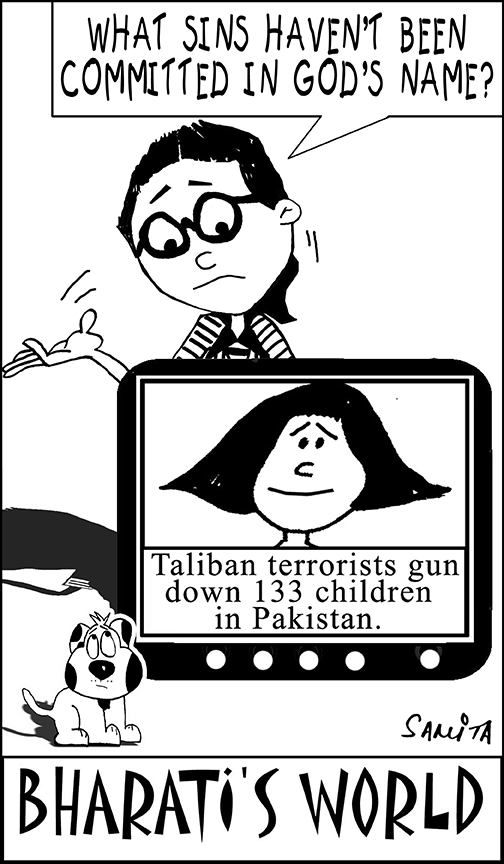AS IF TAMIL NADU'S 52,303 government and aided primary-secondary schools suffering the weight of crumbling buildings, teacher shortages, depleting classrooms and poor learning outcomes didn’t have enough problems, of late they have been afflicted with the additional problem of spreading indiscipline and violence.
 On December 1, a class XII student of the Government Higher Secondary School, Maduravoyal, Chennai, struck his computer science teacher for criticising his work — a widely publicised incident which has outraged school managements, parents and teachers’ associations, reviving a statewide debate on issues of parenting, teaching, and student indiscipline within the school system which places a high premium on examination success.
On December 1, a class XII student of the Government Higher Secondary School, Maduravoyal, Chennai, struck his computer science teacher for criticising his work — a widely publicised incident which has outraged school managements, parents and teachers’ associations, reviving a statewide debate on issues of parenting, teaching, and student indiscipline within the school system which places a high premium on examination success.
Public outrage over school indiscipline is on the boil because this is only the latest example of violent attacks on teachers by their students. In February 2012, a class IX student of the government-aided St. Mary’s Anglo Indian Higher Secondary School, Chennai, brutally murdered his science/Hindi teacher for reprimanding him for poor performance in class tests. In October that year, a class IX student of a private school in Virudhunagar district, stabbed his mathematics teacher for scolding him for latecoming, and on November 20 this year, a rented mob beat up a physical education teacher of the Loyola Matriculation Higher Secondary School, Chennai, for allegedly striking a businessman’s son.
School teachers who are at the receiving end of a rising tide of student violence, are particularly indignant. On December 21, several teachers associations staged a joint protest in Coimbatore and urged the government to take steps to protect them. They also warned the state’s department of school education against taking punitive action against teachers on the basis of unproven charges.
Educationists in Chennai list rapid social change, over-indulgent parenting, rising disrespect for teachers and poor standards of teaching for the increasingly hostile behaviour of school children. “Student behaviour is a reflection of society. Parents are no longer role models for their children. Overworked and stressed, they vent their frustrations at home and often in public spaces giving the impression that it is alright to express emotions aggressively. On the other hand, teachers are concerned about covering the prescribed syllabus before exams rather than listening to every voice in the class. Moreover rising parental and school pressure to excel in academics and total absence of values-based education in most schools, blur students’ ability to distinguish right from wrong. The teacher-student relationship will improve greatly if teachers act as facilitators of learning and work in harmony with students, instead of overloading them with obsolete textbook knowledge,” says Magdalene Jeyarathnam, founder, East West Centre for Counselling, Chennai.
Against this backdrop of intensifying teacher-student hostility, informed academics advise that teacher training programmes need to be improved with teachers receiving lessons in managing a new generation of impatient children with low pain and tolerance thresholds. “Almost all teacher training programmes advise sympathy for first generation students and advocate extra attention for those who require it. However, this is practiced more in the breach and teachers tend to publicly criticise and humiliate students.
Therefore teacher training programmes need to be contemporised to include group and teacher-pupil activities in class to build healthy teacher-student relationships. More importantly, since teachers have to manage large numbers of students per class, school managements, parents and society should be supportive of their work and ensure that student-teacher conflicts don’t arise,” says Ayesha Iqbal, professor of English, department of humanities and social sciences at IIT-Madras.
All these recommendations and advisories translate into upgradation and transformation of the country’s 8,000 teacher training colleges which are way behind the times.
Hemalatha Raghupathi (Chennai)